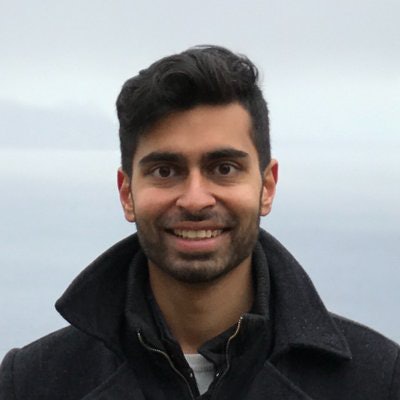Recently, federal prosecutors charged dozens of wealthy parents with bribing college officials to ensure entry for their children into some of America’s most elite colleges and universities. As infuriating as those headlines may be, they are simply the byproduct of a college admissions industrial complex that risks cementing our social and career hierarchy based upon the accomplishments of 17-year-olds.
Admissions at our most selective institutions is, in effect, a regressive tax on low-income students. It favors the rich, and filters the poor through a maze of factors — from legacy status to standardized tests — that magnify structural inequities endemic in our K-12 schools. And it is putting a chokehold on economic mobility in an era where graduates of elite institutions earn over 30 percent more than those who attend less selective colleges.
 Ashu Desai
Ashu DesaiJust three percent of incoming freshmen at the most selective institutions now come from families in the bottom income quartile, while 72 percent are from families in the wealthiest quartile. About one-quarter of the country’s richest students attend an elite college, while just one-half of 1 percent of the poorest American families attend an elite institution. What’s worse, even the lowest-performing children of high-income parents graduate at higher rates than the gifted students who come from low-income families.
In response, a growing number of institutions are exploring ways to make their admissions more accessible. Last year, the University of Chicago launched a test-optional admissions process. While far from the first institution to explore test-optional admissions, it is, arguably, the highest profile to do so. The change has sparked hope that more institutions will soon follow suit.
And with good reason. A 2018 study of applicants to schools with test-optional admissions found substantial increases in first-generation, low-income and minority students. The study also found students who didn’t take the SAT or ACT before applying to college graduated at the same or higher rates than those who do.
Our results, albeit early, reflect a similar — and perhaps hopeful — pattern. More than half of our students come from families making less than $60,000 a year. Forty percent are underrepresented students of color. Those who didn’t make the cut for MIT or Stanford now sit in classes alongside peers who passed on Penn and NYU. Colleges may not have been willing to take the risk, but our graduates have now proven their potential in ways that have led to jobs at Google and Tesla. On average, their starting salaries rival graduates of the nation’s most elite institutions. And they’re proving that elite outcomes do not require an admissions process that favors the elite.
But to make good on the promise of higher education, we must go even further. Admissions at all selective colleges should be about the identification of potential, more so than the foreclosure of opportunity. The process should reflect that inequitable experiences shape outcomes — and inequitable outcomes can mask potential.
Rather than measure a student’s value through socioeconomic status and backward-looking proxies, colleges should evaluate students’ work ethic and aptitude in the areas they hope to study and build careers. Students who haven’t yet developed evidence of these traits at the time of their application should be given opportunities to earn their admission through specially-designed coursework or other on-ramps. Colleges should provide support — including personalized feedback and dedicated office hours with instructors — to these students as they work to prove themselves.
It is time for selective colleges and universities to stop paying lip service to progressive values while slamming their front doors in the faces of low-income students. Institutions must rethink and redesign the admissions process so that it can better serve as an on-ramp, not a locked gate, for all students who deserve the opportunity to pursue their aspirations.
Ashu Desai is the founder of Make School, a computer science college in San Francisco.



















